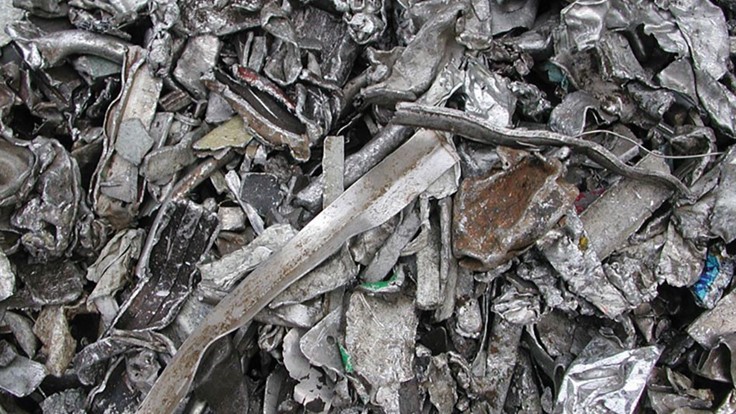您想继续阅读英文文章还
是切换到中文?
是切换到中文?

THINK ALUMINIUM THINK AL CIRCLE

On December 20, 2022, the disruptive technology driver in the world of aluminium scrap sorting and recycling, Sortera Alloys, Inc., announced that it had achieved high-quality sorting of pre-production aluminium with more than 95 per cent accuracy.

These findings demonstrate that Sortera's advanced deep-technology platform, which includes a vision and other advanced hardware sensors and is powered by a software stack that includes machine learning and artificial intelligence, can handle complex sorting effectively and efficiently, specifically processing end-of-life mixed alloys by category and chemical composition. This enables the business to recycle these resources into the supply chain without compromising their integrity or compound makeup, supporting North America's circular economy and reducing the planet's carbon and environmental effects.
The sorting platform from Sortera separates, collects, and recycles current streams of mixed aluminium scrap into final products made of high-quality aluminium.
Sortera produces high-quality aluminium scrap that is recycled back into the production process for use in high-value products like cast and flat-rolled automotive components, as well as extrusions for the building, construction, and aerospace industries.
Customers may lower their CO2 footprint, pursue sustainability and circular production goals, and utilize just around 5 per cent of the energy needed to produce aluminium alloys from virgin material thanks to the company's low-cost, highly scalable sorting process.
Manuel Garcia, the Jr. Co-Founder and Vice President of AI and Data Science for Sortera Alloys, said, "Our technology platform produces extremely high-resolution datasets that include information such as size, shape, texture, and chemical composition, for every single piece of scrap that is processed."
“The ability to resolve the aluminium alloy chemical composition within fractions of one per cent in real-time enables high classification sorting accuracies to be achieved. In this fashion, Sortera's robotic industrial machinery can place each unique aluminium alloy into a different sorting bin with high throughput.”
"Sortation of the mixed scrap pieces into unique aluminium alloys enables novel circular economies in the automotive industry to be created, which does not currently exist in the North American market."
Sortera is scheduled to ramp up processing in Q1 2023 after moving into its new 200,000-square-foot processing plant in Markle, Indiana, and employing personnel. The Markle site represents an important turning point for Sortera as it seeks to expand its operations and seize a sizeable share of the 4 billion lbs. scrap aluminium that has often been sent for processing or reduced into inferior secondary materials. Due to technological limitations, Sortera is developing new scrap packages; alloy scrap that was previously downgraded can now be enhanced. No one in the world can now sort numerous alloys in one pass, but the new facility can accomplish it.
Michael Siemer, the CEO of Sortera Alloys, said, "As we improve our technology and processes, we are thrilled to learn that our team has recently sorted mixed aluminium with greater than 95 per cent accuracy. The ability to recycle scrap alloy into high-purity recycled feedstock used in key industries not only ensures that we can provide our customers with the materials they need in their respective industries but also establishes our role as a strong player in the circular economy as we make significant contributions to combating climate impact."
"Aluminum is one of the few industrial materials that can be infinitely recycled and reused if its scrap can be accurately sorted. Our technology platform has proven that it can. Once we complete our Markle facility, it will be a key component that will allow us to target the largest untapped source of aluminium scrap in the North American market, minimizing the need to mine virgin metals and ultimately eliminating the need to export this for processing into lower-grade metals. Although our technology platform was developed for the aluminium industry, it has applications in other industries where novel circular economies can be created, such as in the plastics, textile, paper, agricultural, and MSW industries."
Utilizing waste metal that has reached the end of its useful life as a starting point for carbon reduction in the aluminium industry. With the help of Sortera, mixed aluminium materials that were previously downgraded may now be upcycled, minimizing the amount of primary aluminium required for secondary aluminium alloy goods like sheets and extrusions while increasing their affordability.
The cherry on top is the extra gains in operational enhancements; fewer trips to the furnace result in cost savings for everyone and effective environmental management.
Responses








